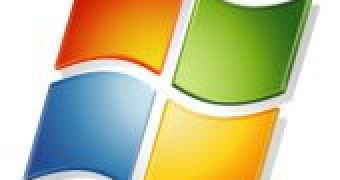Microsoft doesn’t see a real distinction between Windows 8 Tablet PCs / slates and Windows 8 PCs, essentially between next generation and more traditional form factors.
This perspective was stressed yet again at the company’s Worldwide Partner Conference 2011, by Andrew Lees, President, Windows Phone Division.
“Now, a lot of people have asked me, are we going to produce a phone that is a tablet? You know, are we going to use Windows Phone 7 to produce tablets?” Lees said.
“Well, that is in conflict with this strategy. We view a tablet as a sort of PC. We want people to be able to do the sorts of things that they expect on a PC on a tablet, things like networking to be able to connect to networks, and utilize networking tools, to get USB drives and plot them into the tablet.
“To be able to do things like printing, all of the things using Office, using all of the things you would expect from a PC and provide a hybrid about how you can do that with the tablet, as well.”
As far as I’m concerned, there’s a conceptual level and a strategy level to looking at tablets as computers.
I absolutely agree, and I’ve already said so in the past that the concept of PC has evolved so much in parallel with the evolution of hardware capabilities of modern form factors, that tablets and slates, and even some smartphones can easily qualify as computers.
At a conceptual level, I have no issues with this juxtaposition. Windows 8 tablets are PCs, sure, I can let that slide.
But I think it’s an absolute wrong path for Microsoft to embark on to treat Windows 8 slates as PCs, strategy wise.
These are devices perfect for content consumption scenarios, and although undoubtedly they’ll evolve to be much more, their core purpose needs to remain the same.
There are a number of things that I expect from my future Windows 8 computer by default: to install an antivirus, to deploy the entire range of programs that I use every day, to perform scans, clean the registry, to defragment the hard drive, to store massive amounts of content, to perform backup operations, etc.
I expect none of this complexity when thinking about a Windows 8 slate. None. I just want it to work, seamlessly. I want to use it for Internet browsing, email communications, watching movies, listening to music, playing a few casual games and reading books. And that’s about it.
I get this experience from my smartphone, and it’s what I want from my Tablet PC. Not the full Windows 8 operating system, but a slimmed down platform, as locked as possible, with a dedicated application marketplace, designed for media consumption scenarios.
The last thing I’m looking to do is spend more on an Office license than on the tablet, install it on my Windows 8 slate, connect it to a printer and, well, print a document. The last thing!

 14 DAY TRIAL //
14 DAY TRIAL //